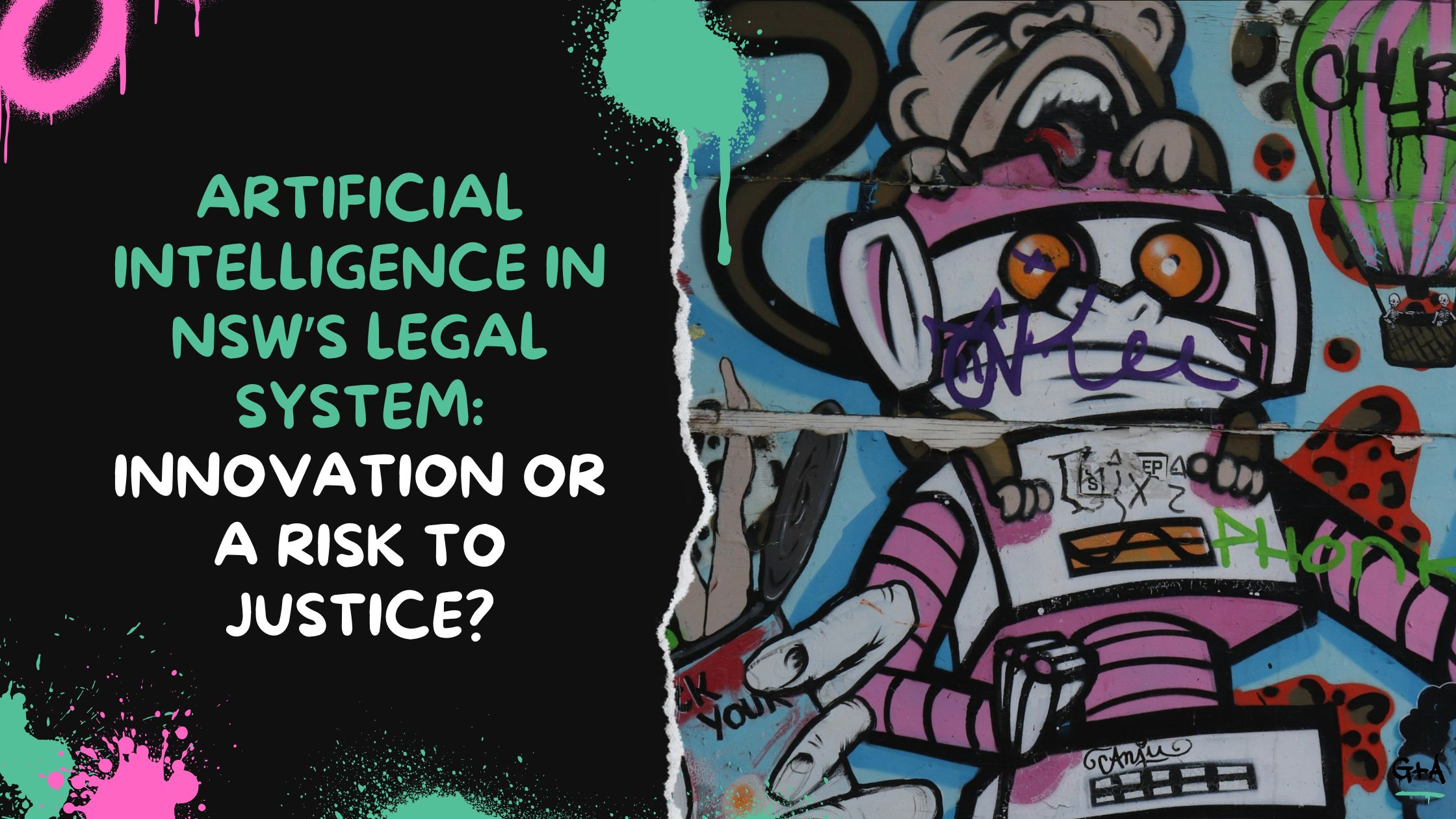Artificial intelligence is making its way into courtrooms, and NSW’s Chief Justice is calling for careful oversight. As AI continues to transform industries worldwide, its role in the legal system has become a growing topic of debate. While AI has the potential to streamline legal processes, improve efficiency, and reduce costs, concerns remain about its accuracy, ethical implications, and the risk of undermining human judgment.
So, will AI revolutionise the NSW legal system for the better, or does it pose risks that the courts aren’t ready for? Let’s take a closer look.
AI in the Legal System: What’s Changing?
AI is already being used in various legal settings across the world, from automating document analysis to predicting case outcomes based on historical data. In NSW, Chief Justice Andrew Bell has highlighted both the opportunities and risks of integrating AI into the judicial system. While AI could enhance efficiency by assisting with case management and research, its potential influence on legal decision-making remains a major point of concern.
One of the biggest advantages of AI in the legal system is its ability to process vast amounts of information quickly. Legal research that once took hours or even days can now be conducted in minutes, thanks to AI-powered tools. This could help streamline court proceedings, allowing cases to be resolved more efficiently and reducing backlogs in the judicial system.
However, with efficiency comes the question of reliability—can AI truly understand the nuances of legal reasoning, ethics, and fairness in the same way a human judge or lawyer can?
The Risks of AI in Justice
The Chief Justice has raised key concerns about the potential pitfalls of relying on AI in legal settings. One major issue is bias. AI models are trained on existing data, meaning that if historical legal decisions contain biases, those biases could be reinforced by AI systems. This raises the risk of discriminatory outcomes, particularly in cases involving marginalised communities.
Another critical concern is the lack of accountability. If AI plays a role in legal decision-making, who is responsible when something goes wrong? Unlike human judges, AI cannot be held accountable in the same way, creating a legal and ethical gray area. The risk of “black box” decision-making—where AI reaches conclusions without clear explanations—poses a direct challenge to the principle of transparency in justice.
There is also the danger of over-reliance on AI-generated legal advice. If legal professionals begin to trust AI outputs without critically assessing them, errors or misleading information could influence case outcomes. Ensuring that AI remains a tool rather than a decision-maker is essential in maintaining the integrity of the legal system.
A Call for Careful Oversight
Rather than rejecting AI outright, NSW’s legal community is advocating for its careful and regulated use. The Chief Justice emphasises the need for clear guidelines on how AI should be implemented in legal processes, ensuring that it remains a support tool rather than a substitute for human judgment.
This could include setting limits on how AI-generated information is used in court proceedings, requiring human oversight in all AI-assisted legal processes, and ensuring that AI systems are regularly audited for fairness and accuracy. Additionally, legal professionals will need to receive proper training on how to use AI responsibly, ensuring they understand both its benefits and limitations.
The Future of AI in Law
While AI will undoubtedly play a growing role in the NSW legal system, its integration must be approached with caution. Technology should serve to enhance, not replace, human judgment, particularly in matters as complex and consequential as the law.
The coming years will determine whether AI becomes a valuable asset to the legal profession or a source of legal challenges in itself. For now, the focus remains on finding the right balance—leveraging AI’s capabilities while preserving the principles of fairness, accountability, and human judgment that are essential to justice.




